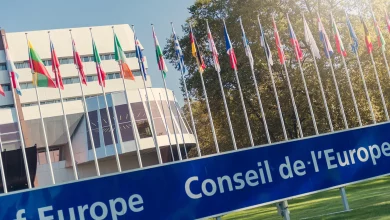The Issue of Excessive Data Anonymization in the Online Register of Local Acts. A New Instruction for Public Servants

In early November, the State Chancellery of the Republic of Moldova approved an instruction on depersonalizing administrative acts in the State Register of Local Acts. The document is aimed at ensuring proportionality of the right to access information of public interest and respecting the right to privacy.
The document has a recommendation status and serves as methodological guide for civil servants.
Lawyer Sergiu Bozianu, President of the Association for the Protection of Privacy, who was taking part in drafting this methodological guide, says that, initially, these acts were published in the register without being properly anonymized. Later on, the National Center for Personal Data Protection (NCPDP) intervened with a number of sanctions, encouraging the public institutions to approve their own regulations on publishing acts. “Recommending a public institution to draft its own regulations in such a sensitive area where they don’t have sufficient expertise is strange, to say the least. After many officials were sanctioned for divulging personal information, they went to the other extremity, depersonalizing such data of public interest as names of officials who issued an act, budgets, amounts allocated for particular expenses, cadastral numbers of real estate put up for public bidding, etc. A lot of time passed before this instruction was approved, and it is likely to bring more clarity and to help officials comprehend what could be depersonalized and which data should remain public. This instruction that could explain which personal data is of public interest should have been compiled much earlier and, in general, refer to and include depersonalization of court decisions, medical documents, acts published in the Monitorul Oficial, etc., where the data protection legislation is applied in an excessive and distorted manner,” the lawyer explains.
Therefore, according to the guide, the officials are supposed to further anonymize personal codes of persons mentioned in the documents, data regarding abuse and rape, or information concerning minors.
In recent years, journalists using the State Register of Local Acts have been complaining that documents in this database are excessively depersonalized. “Getting access to the information from the Register of Local Acts is often a comedy drama experience. Some documents the authorities provided oscillate between two extremes: from anonymizing the Mayor’s Office fiscal code, the identity of the councilor, or the figures from the budget to publicly displaying the data regarding minors under guardianship. The journalists are among those who frequently suffer from such practices, and documenting the materials is a real challenge if the documents are anonymized to such an extreme extent that they no longer have any informative value. The main excuse of the civil servants in charge of publishing documents in the Register is their obligation to protect personal data, yet they comply with it contrary to the legal provisions. Negligence, poor knowledge of the legislation, and insufficient training are probably to blame. We have a great hope that the provisions of this instruction will become known, understood and, perhaps, they will be correctly applied to practical tasks at last,” Cristina Durnea, legal counselor at the Independent Journalism Center, says.




